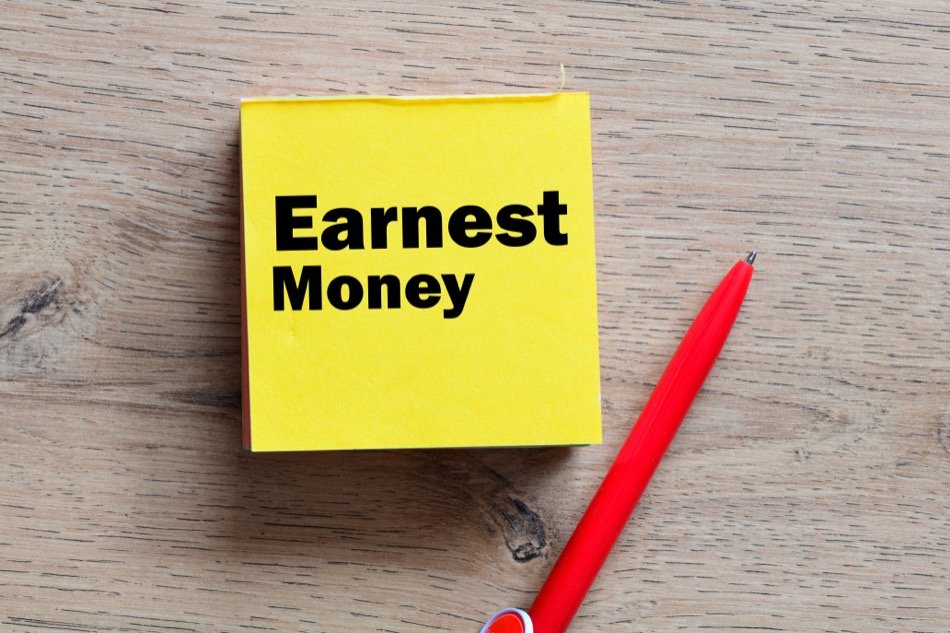What Is an Earnest Money Deposit?
Posted by EdmontonRealEstate .ca on Monday, November 4th, 2019 at 9:16am.
 When home buyers are interested in purchasing a property, they need to make an offer to the seller. In the purchase contract, buyers typically offer to make an earnest money deposit in good faith. There are rules and conventions concerning how deposits are handled, and both buyers and sellers must abide by them. With this information, Northwest home buyers will have a better understanding of the amount they will pay in a deposit, and what happens to it once they put the money down.
When home buyers are interested in purchasing a property, they need to make an offer to the seller. In the purchase contract, buyers typically offer to make an earnest money deposit in good faith. There are rules and conventions concerning how deposits are handled, and both buyers and sellers must abide by them. With this information, Northwest home buyers will have a better understanding of the amount they will pay in a deposit, and what happens to it once they put the money down.
For informational purposes only. Always consult with a financial advisor before proceeding with any real estate transaction.
What Is an Earnest Money Deposit?
A purchase offer is an offer to buy property, but almost anyone can make one. Sellers want to be sure the buyer is happy to make the commitment by putting some of their own money on the line. This money is the earnest money deposit. This is particularly important in areas where the real estate market is hot. If the seller has to choose between several competing offers, the guarantee of a bigger deposit is one way to encourage them to select a particular buyer.
How Much Do Buyers Put in the Deposit?
As a general rule, buyers will specify the amount of the deposit in the purchase offer. The amount depends on the conventions of the region, as well as the sale price and the competition in the neighbourhood. Someone who lives in an area with few homes for sale and even fewer buyers may be able to make a deposit of only a few- hundred dollars. Buyers who may have to engage in a bidding war might be expected to put down a few percentage points of the home's estimated value. Since it can be quite difficult for buyers to get their deposit back if the sale fails, larger deposits may be more encouraging to sellers.
Who Keeps the Deposit Money?
Although the buyer offers the deposit money to the seller, the money is held by a third party. This is usually an organization designated by the seller that can hold the deposit until the sale concludes or fails. Buyers usually have 24 hours after the seller accepts their offer to make the deposit. Some buyers prefer to prepare the deposit in advance. This may make sense in a hot real estate market, but most people wait until they have a signed contract before they get it ready for the seller.
Can Buyers Put Limits on the Deposit?
Typically, buyers do not place contingencies on the earnest money deposit. This is because both buyer and seller have to agree to give the deposit back, which can create a very complicated process. If buyers set any limits at all, they often place it on the results of a home inspection. However, there is no guarantee that an inspection report with lots of faults will make it easy for buyers to cancel the contract and get their money back. As such, buyers should be certain they are ready to buy the home before they make an offer and provide the deposit.
What Happens to the Deposit Money?
If the sale succeeds, the third party will provide the deposit to the seller at the conclusion of the sale. The deposit may go toward the down payment or certain closing costs. If the sale fails, buyer and seller have to negotiate how they want to approach the deposit. The seller can choose to release the money to the buyer in the event that something about the property rendered the sale impossible. If the seller disagrees, buyers may have to hire a lawyer to argue their case.
Buying a home starts with a purchase offer and an earnest money deposit. By understanding what to expect from this part of the process, buyers can make a more practical decision.
For informational purposes only. Always consult with a financial advisor before proceeding with any real estate transaction.

